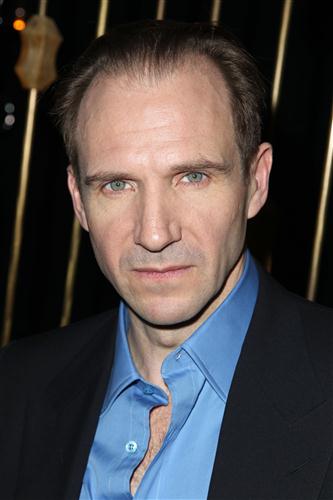Shakespeare Studies with Fiennes, Redgrave, and Chastain

ABOVE: RALPH FIENNES AT LAST NIGHT’S CORIOLANUS PREMIERE. IMAGE COURTESY OF MARION CURTIS/STARPIX
Even the spoiler-averse will need to give us a break for ruining the ending of Coriolanus, the directorial debut by Ralph Fiennes, which premiered in New York last night—the source material is four centuries old, after all. Fiennes’ stylish, hypermodern adaptation ends, as the play does, with Coriolanus’ violent death—so it was a little strange to see Fiennes, who also stars in the film, walking around alive and well at Forty Four at Royalton just a few minutes after the screening ended, at a Peggy Siegal Company after-party sponsored by Dewar’s and Chopard.
Fiennes knows his way around a death scene—we can think of at least one notable recent example—but it must be different to direct one’s own, right? To hear Fiennes tell it, there wasn’t much time to overthink it. “It was the last two days in Serbia; our time was short, and I had to coordinate a fight sequence and shoot it,” he said, Patti Smith looking on nearby. “I planned it before, I thought about it, I storyboarded it, I had a map, it was an idea. So it was just a question of making sure we got all the shots in the time.”
Newly-announced BAFTA nominee Jessica Chastain, who plays Coriolanus’ wife Virgilia, was familiar with the play from her days at Juilliard—and had a particular concern about her character going into the shooting process. “I think a problem you could fall into with Virgilia is everyone always says to her in the scenes, ‘Why are you crying?’ or ‘Stop crying!’ Every scene, someone says that!,” Chastain laughed. “I told Ralph, this is what I’m afraid of, I just don’t want to be like the weeping wife! And the wonderful thing about him is he found ways through the screenplay to not make it just that. When he said that, it was a match made.”
The other important woman in Coriolanus’ life—Volumnia, his mother—is played by Vanessa Redgrave to stellar effect; we’d pick her for an Oscar this year over Streep, Close, and all the rest. Redgrave channels Volumnia with a steely-eyed, fervent persuasion, a far cry from the soft-spoken actress’ own manner. “It’s kind of my job!” she said. It’s kind of my job to put myself into the skin, into the soul, into the shoes, into the clothes, into the mind of a person so different from myself. Otherwise, I wouldn’t be an actress. I enjoy it, and I learn a lot about life through that process.
“Sometimes, I’ve learned, you can make such big mistakes,” Redgrave continued. “Because the person that’s smiling all over their face and really seems to be lovely turns out not to be lovely at all; and the person who’s looking rather grim, and you think, ‘I don’t like the look of you,’ turns out to be a really special person.” Then she turned away—Susan Sarandon, both a special person and a smiling one, had come to give her a hug.






